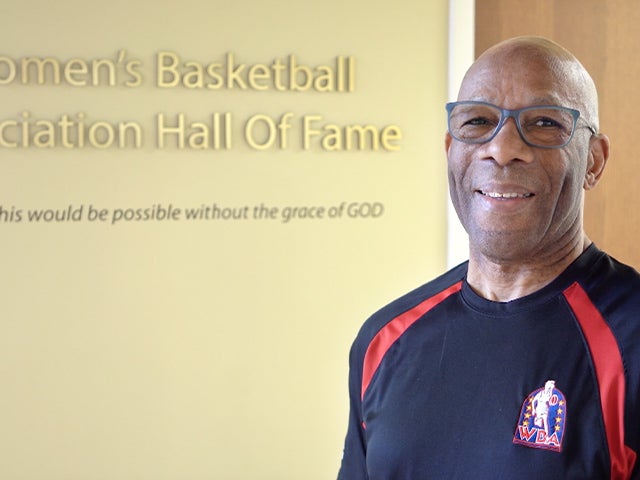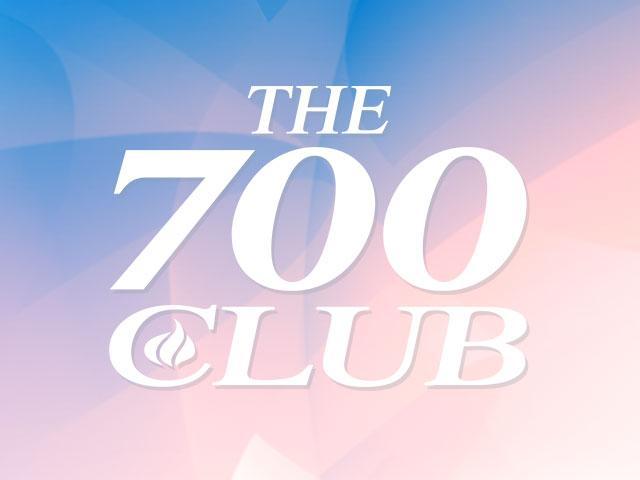The Pioneer of Women’s Professional Basketball
The WNBA. Since 1997 the premier women’s basketball league has grown in popularity and gives talented women an opportunity to play basketball for a living. However, few people know the true story behind the WNBA’s creation and the man now named “Lightning”, to whom much of the credit belongs. Ned Mitchell was born in rural Louisiana in 1948 where his leadership skills were evident, even at a young age.
Mitchell says, “I remember as a child back around when I was 9, 10 years old, I used to organize little leagues like football games and basketball games for kids in our neighborhood. So, I feel now that God was preparing me to organize such a league.
A three-sport athlete in high school, Ned dreamed of playing in the NFL. And while the NFL draft remained a dream, being drafted into the army became his reality and he was immediately shipped to Vietnam; A frightening time in his life.
Dawson asks, “Were you afraid?”
Mitchell responds, “Very much! Yeah, I was very scared because they were saying that Americans were being shot – some of the planes were being shot as they come in to try to land. So yeah, I was scared.”
After serving two years, Ned returned home and went to William Jewell college in Kansas City to play football. It was there he earned the nickname “Lightning” for his electric and shifty moves on the field. While there he attended a church service that changed his heart.
Lightning says, “And I remember that night when the pastor called. I remember I got up and I asked the Lord to forgive me of my sins and I said, ‘I receive You as my Lord and Savior and I asked Him to help me to live the life that He wanted me to live.’”
Lightning went on to play semi-pro football in Wisconsin and Illinois, while working full-time in a factory, hoping and praying to get a shot at the NFL.
"I wanted to play professional, right that moment, right now,” said Lightning “and I cried out to God and I asked God to help me get into professional sports. And that night God told me to create a women's professional basketball league.”
Dawson: How did you respond to that?
“Well, I played around with it you know, more or less because I thought maybe I needed to just get more rest. I didn't think I really heard him.”
He still needed more confirmation.
Lightning says, “I said, ‘Lord, if you want me to create this women's professional basketball league,’ I said, ‘Can you do something to give me a sign?’ And I remember that night I saw a shooting star and almost like it was coming down in front of the windshield as I was driving. And I took that for a moment as a sign from God.’”
In fact, he saw four shooting stars.
“Like whommm, whommm, whommm,” Lightning says, “just like that. And I remember the chills that came up on my body and I started crying and from that point I took it seriously.”
Lightning sent over 100 letters to division one basketball schools announcing a tryout for the Women’s Basketball Association. The media, however, was skeptical. Women’s professional basketball leagues had started and failed on several occasions in the 70’s and 80’s. But Lightning knew otherwise.
Lightning says, “It was about a minute to 10, those glass doors opened and women came through out of nowhere with duffle bags. We had over 200 players there. And those are the type of things that God done throughout this whole event.”
In 1992, the WBA tipped off for the first time even though there wasn’t much money to go around. Still, the women of the league believed in Lightning’s vision.
Lightning says, “These were NCAA division one players coming out of college with degrees to go and teach or run business or company. You know, they put that aside to do what I was trying to attempt to do was give women the opportunity to play professional basketball here in the United States.
After four years of hard work, Lightning had shown that his league was not only viable but could be successful.
In 1995, the NBA took notice and asked Lightning for insight. Instead of partnering together, the WNBA was formed and tipped off the next year in 1996.
Lightning’s WBA couldn’t compete and had to cease operations. He was frustrated and disappointed, but through prayer realized that God had made him a pioneer.
Lightning says, “I'm glad that women are able to play professional basketball here in the United States, you know? I think that was my assignment. I think I had accomplished what God wanted me to accomplish."
And his legacy lives on. On February 1, 2021, the WBA was enshrined in the Kansas City museum’s black archives of mid-America. Today Lightning is retired and travels the country telling the story of the WBA, and the God who made it all happen.
Lightning says, “I want people to understand that this league that they watch today, the WNBA, only came about because of the grace of God. This wasn't man. This was God. I'm so thankful to the Lord that he allowed me to be a part of this whole thing. My dream was to play professional football, but God gave me something greater than my dream."





